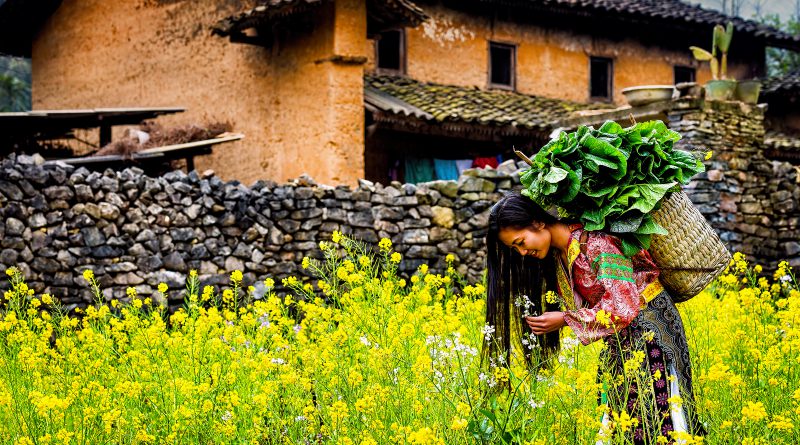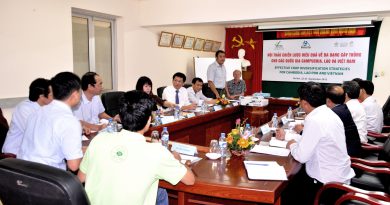Viet Nam’s first UNESCO- recognized GeoPark helped to achieve GIAHS status
Since 2005, Viet Nam has made considerable efforts to improve surveillance and control systems of animal diseases and promoting new food safety laws and safe animal husbandry practices. The Livestock Development Strategy to 2020, issued in 2008 by the Prime Minister, explicitly recognizes the imperatives of sustainability within the context of changing national food economy. Achieving this vision requires a complex policy and institutional response that can stimulate income growth and employment in rural areas, protect livelihoods of small-scale farmers, ensure delivery of affordable, safe and high quality food to all sections of society and minimize any potential negative impacts of rapid livestock sector development.
As a result, there is an urgent need for an integrated system that can provide MARD with more consistent and frequent information on a broader range of indicators characterizing production systems.
FAO is leading the way to help Viet Nam’s first UNESCO-recognized GeoPark achieve Globally Important Agricultural Heritage System (GIAHS) status.
GIAHS was initiated in 2002 by a global partnership of UN agencies, facilitated by FAO. It aims to promote global public understanding, awareness, national and international recognition of agricultural heritage systems. The breath-taking Dong Van karst plateau landscape in Ha Giang province is only the second area in Asia-Pacific to receive such status and the Vietnamese Government plans to conserve and promote the outstanding convergence of geographic, geological and biodiversity assets of the karst plateau.
To do this, the government has sought FAO’s technical assistance to formulate a proposal to declare the agricultural landscape and practices in the Dong Van karst plateau as a GIAHS site. The objective is to identify and safeguard traditional farming systems in Dong Van geopark and its associated landscapes, agricultural biodiversity and knowledge systems through catalyzing and establishing a long-term programme to support such systems and benefits derived through their dynamic conservation, sustainable management and enhanced viability.
A big step towards achievement of this status was a first multi-sectoral workshop to promote the plateau’s agricultural heritage, during June 25-26. The objective of the FAO-supported workshop was to build awareness about GIAHS, discuss the area’s unique agricultural production systems as well as economic and cultural activities.
GIAHS certification would heighten awareness of the site and offer socio-economic opportunities for local communities, such as ecotourism. Products from GIAHS sites can labelled as such and can command higher prices.
FAO’s Asia-Pacific GIAHS consultant Mr. Ed Queblatin highlighted how GIAHS sites were “dynamically conserved” and specific steps needed for immediate recognition of the Vietnamese site. He said GIAHS was important to crop varietal improvements and highlighted ingenious intercropping practices that kept soil from degradation.
This is important for the more than 17 ethnic groups who live on the plateau and have struggled to adapt to the harsh physical environment.
Upcoming Events
World Food Day 2015 celebration on October 16th will be held with the theme ”Social Protection and Agriculture: breaking the cycle of rural poverty”, and also mark the 70th Anniversary of FAO World Rabies Day will be held on September 28 with the theme “Let’s end rabies together by vaccinating dogs”.
Source: Newsletter, March-July 2015, FAO in Vietnam

